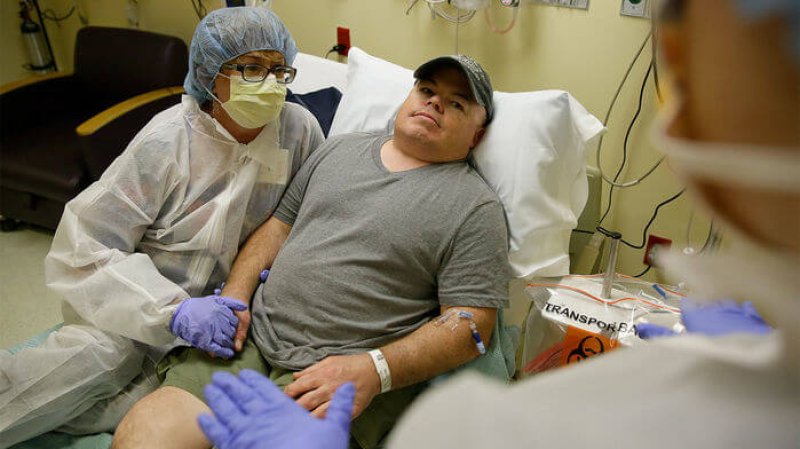In late 2017, scientists first began attempting to edit the genes of adults to treat rare genetic disorders. Preliminary results from a clinical trial, shared by the researchers at the WORLDSymposium conference in Orlando, Florida [on February 7] suggest success in actually altering the DNA, although it’s still unclear whether the intervention will help the patients.
…
The men enrolled in the studies by the company Sangamo include eight patients with Hunter syndrome and three with Hurler syndrome, according to the AP. These are rare metabolic disorders caused by mutations that leave the men without an enzyme needed to break down certain polysaccharides. In turn, sugars accumulate in the body, leading to organ damage and often early death.
Scientists are using zinc finger nucleases delivered by a virus to cut the defective gene at specific locations and replace it with a corrected code.
…
A few of the Hunter patients experienced a boost in the level of the missing enzyme, but none reached the typical level of unaffected people. Preliminary results from those treated for Hurler syndrome showed an uptick to normal levels.
“It looks like it’s safe . . . that’s a very positive sign,” [said] Kiran Musunuru.
Read full, original post: Preliminary Results Point to Success of In Vivo Gene Editing































